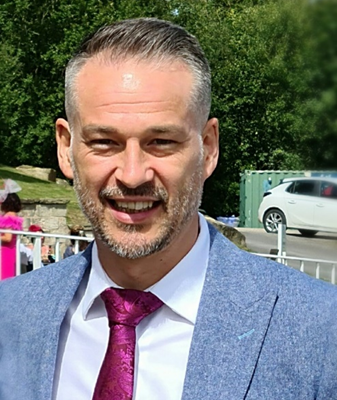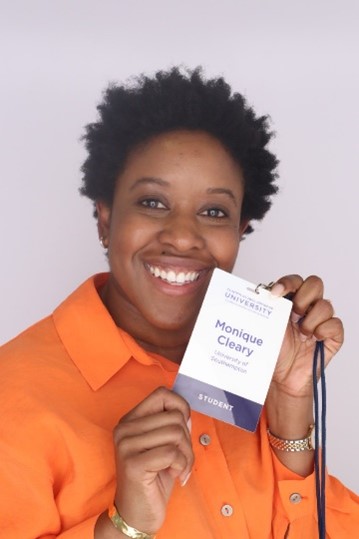Case studies
Case studies which underpinned the work of the project looking at the Modernisation and reform of the twentyfirst century podiatrist

Daniel Broadley
Extended scope podiatrist
Case study
Daniel Broadley: Extended scope podiatrist
After qualifying, Daniel worked as a locum before securing a Band 6 position providing a breadth of services including MSK, Diabetes, nail surgeries and routine care. Daniel always had a special interest in MSK and sought after MSK aspects – such as providing simple insoles and offering exercises – in his general cases to develop his knowledge and skills in this area.
Daniel began working in a specific MSK role where he continued to build his skillset which eventually led to him leading in biomechanical clinics. This leading role supported Daniel’s transition into a hybrid role: part-time staff podiatrist and part-time MSK podiatrist.
| Staff podiatrist role | MSK podiatrist role |
|
|
Daniel reports the benefits of working in the NHS, mentioning, “the NHS gives me the support and peer review, as well as team working".
Alongside his NHS hybrid-role, Daniel also works privately, seeing both MSK and general clients. Initially, Daniel was reluctant to see routine clients again after specialising in MSK. However, he soon realised he was able to apply his new MSK knowledge and skills to these clients, picking up on biomechanical aspects that were influencing foot health. Daniel mentions the benefits of working in private practice including “allowing use of all my skills, including things which may not be NHS funded.”
To support career development, Daniel undertook additional learning courses:
- MSc in Clinical Podiatric Biomechanics
- MSc modules in Podiatric Surgery: including blood work, diagnostic ultrasound course
- POMs
Daniel has extended his capabilities across the four pillars of practice and demonstrated development in research and evidence by undertaking an audit on Developing an MSK arm of the podiatric surgical unit to improve patient reported outcomes. This audit was designed to increase the service user experience of care delivery after Daniel noticed that not having a dedicated MSK clinician in the surgery unit resulted in service users being referred back and forth to community services for management, where the clinicians in the community did not have dedicated knowledge of the service user’s condition, which affected outcomes and delayed treatment. Through Daniel’s audit, the service incorporated an in-house MSK lead, and the audit results demonstrated improved outcomes for pre- and post-operative service users.
Daniel recommends for those wanting to excel in an MSK career, to:
"Spend time in MSK units or podiatric surgical units to gain experience. Try and use your knowledge in general clinics to make insoles and give advice or exercises to improve knowledge and skill".

Louis Mamode
First contact practitioner on advancing practice pathway
Case study
Louis Mamode: First contact practitioner on the Advancing practice pathway
Louis undertook a summer internship with Versus Arthritis leading to a part-time research assistant role with the University of Southampton. Louis also worked part-time in the NHS as a Band 5 podiatrist.
After some time, Louis transitioned into private work and secured a position in a medical centre, where he worked with an interesting multi-disciplinary team, made up of GPs, practice nurses, and other allied health professionals.
When COVID-19 occurred, Louis trained to provide vaccinations against the virus to the patients at the medical centre. The GPs took a shine to Louis's podiatry role and discussed the new First Contact Practitioner (FCP) roles, which were being introduced. Louis reports the FCP role to be a positive challenge of extra learning, but to support this role, he began undertaking his MSc in Advanced Podiatry. Louis received mentorship and supervision weekly, working through case studies, which has enabled him to build confidence as a FCP.
Now working full-time as an FCP, Louis is on the professional growth journey to become an Advanced Clinical Practitioner and recommends that new graduates who are exploring this avenue be inquisitive with patient presentations, look holistically at their symptoms, and be surrounded by a supportive environment and team.
A brilliant example of how important it is for podiatrists to be embedded in FCP roles is highlighted by an experience of Louis':
"A patient came into the clinic for a review of their gout medication. During the appointment, he reported new symptoms of swelling in the lower legs. I undertook a complex history and physical assessment, listening to the patient's chest for heart function, respiratory function, and sounds, and sent him for blood tests. These investigations led to the patient being referred to cardiology services urgently and he went on to have urgent surgery for a heart valve replacement."

Angela Barry
Associate Clinical Lead for Diabetes
Case study
Angela Barry: Associate clinical lead for diabetes
Angela has dedicated her clinical career to diabetes care, leveraging her extensive practical skills and in-depth knowledge of diabetic foot pathology and multidisciplinary team working in the NHS. In her role, Angela has created, managed, and evaluated a clear, practical, and effective diabetic foot pathway in North East Essex, and has represented the diabetes team at local and regional meetings.
Beyond her clinical work, Angela has expanded her leadership and facilitation of learning pillars by educating healthcare professionals of all levels on diabetic foot disease. She has done so through various channels, from one-to-one mentoring to local and regional training events, and even university-level professional post-graduate courses.
Despite her increased responsibilities, Angela continues to maintain a clinical caseload of complex patients. She provides highly specialised, evidence-based podiatric interventions, including the delivery of advanced care to patients with a high risk of limb loss. Angela has strengthened her research and evidence pillar through auditing service delivery and outcomes within North East Essex for diabetes care and strategising on quality improvement methods.
Furthermore, Angela has successfully extended her reach beyond the NHS by demonstrating a fruitful NHS Portfolio Career. She has expanded her skill set into the private sector, delivering regional education programs on diabetic foot screening and management, as well as peripheral vascular disease to GPs and healthcare professionals. Angela's dedication and expertise make her an invaluable asset to the healthcare community.
| Education and training | Key achievements and roles |
| BSc(Hons) Podiatry Theory | Ensuring the service had clear evidence to support the ongoing funding of inpatient podiatry services |
| MSc Podiatry | Acting as a resource for expert advice and opinion in the field of diabetic foot pathology and management across North East Essex, in primary, community and secondary care settings |
| Pharmacological Management of Diabetes | Speaking for the East of England Diabetic Footcare Network on diabetic foot care pathway development |
| Diabetes Foot Module | Implementing improvements to the diabetic foot pathway, successfully leading to a reduction in local major amputation rates and hospital admissions for diabetic foot disease below the national average |
| Mentor and Clinical Educatory Preparation | Supporting non-medical prescribers to provide evidence-based practice and mentoring new non-medical prescribers within the team, ensuring we stay within budget, whilst providing safe and effective care |
| Independent Prescribing |

Monique Cleary
Podiatry student
Case study
Monique Cleary: Podiatry student
Monique Cleary, a second-year podiatry student, applied for the Student Leadership programme, known as the #150Leaders, to “help develop my skills in leadership and learn ways to bring leadership skills into action.”
The programme includes a two-day residential event full of workshops, lectures, and seminars, followed by monthly online webinars and a network for students to interact with and learn from one another.
Monique reports:
"The residential event was fantastic as I got the opportunity to connect with inspiring future health care professionals across the four nations at different universities, who are also deeply passionate about their career paths and have big ideas about how they think health services could be run in the future.”
“The monthly webinars, which I am able to catch up with around my studies, have also been inspirational. This programme has consciously made me more accountable to who I want to be when I enter the workplace and I am gaining invaluable tools to make me a better candidate for all roles and avenues I pursue in the future.’
About the Student Leadership programme
- The residential aspect of the programme enables networking and relationship building with other students
- Seminars give great opportunities to operate in multi-disciplinary style workshops
- Dragons' Den-style pitches support presentation skills development
- Opportunities to be coached by professionals within your field. Monique reports, “My coach showed me how my ideas can be delivered with the right support, guidance and perseverance"
- Contacts and connection with industry leaders “who have shown how to lead in everyday working life”
- The confidence gained and feedback received in real time
- Networks open wider opportunities. Whilst on this programme, Monique secured a place at the Clinton Global Initiative University after discussing this opportunity with a fellow student, alongside being invited by Health Education England to attend their stakeholder event
- Skills development in creating, planning and delivery of a project proposal, which required presenting this idea to the Clinical Senate of the Royal College of Podiatry and receiving approval.
Monique’s next goal is to explore how she can take her project further with support from podiatry industry leaders.
She comments:
“Now when I enter my working life as a podiatrist, I know I can action change and make a difference.”

Alexia
Preceptorship. Story of a newly-qualified podiatrist
Case study
Alexia: Preceptorship. Story of a newly-qualified podiatrist
Alexia joined the Oxleas AHP Preceptorship Programme in her first month of practice saying she "felt reassured as there was a support system in place right from the start". She went on to say: "It has been really nice to meet monthly with other clinicians who are from different scopes and who are in a similar stage of their career to me. I have felt really supported, especially during this difficult time with COVID-19".
As well as peer support, Alexia said that the portfolio provided her with a clear structure: "I enjoyed the portfolio as it provided me with structure and direction. I had to actively think about competencies when doing my clinical work, for example, barriers with communication." Alexia also appreciated how the portfolio gave her "allocated time to reflect, as at times the work environment can feel fast-paced with clinical pressures".
As part of the programme, she also completed a Masters module to gain 20 Masters credits for the completion of her portfolio. "I have always wanted to go on to do a Masters, so this was a great opportunity for me. It gave me a more in-depth understanding of my clinical reasoning". Alexia went on to describe how she felt the portfolio and accreditation assisted in helping heal a chronic ulcer. "My patient had suffered from chronic ulceration for 10+ years and I felt as if I had tried everything. By completing the professional competencies in the portfolio I used an evidence-based approach to my critical thinking for their care plan. I made a few adaptations tailored to the patient which made a huge impact. The patient went onto heal and remains healed to this day".
Hear from Alexia in her own words in this video testimonial:
Preceptorship aims to consolidate learning from university by applying competencies to real life settings as an accountable clinician, building professional identity, and improving confidence and resilience to make for better-quality patient care and job satisfaction.
Oxleas is offering the programme nationally to all NHS Trusts, local authorities, and private practitioners to purchase. Contact the AHP Preceptorship Team at oxl-tr.ahp.preceptorship@nhs.net.